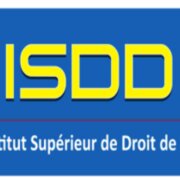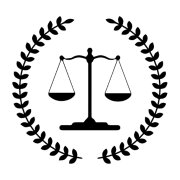Best Natural Resources Lawyers in Dakar
Share your needs with us, get contacted by law firms.
Free. Takes 2 min.
List of the best lawyers in Dakar, Senegal
About Natural Resources Law in Dakar, Senegal
Natural resources in Dakar, Senegal, encompass a broad array of assets, including minerals, oil and gas, forests, fisheries, and water resources. The city, as the nation’s capital and an economic hub, is not only a gateway for imports and exports but also a point of strategic oversight for natural resource governance. Senegal's natural resource sector is governed by a combination of national legislation and international agreements. The law aims to promote sustainable management, equitable access, and environmental protection, while also fostering investment and ensuring benefits for local communities.
Why You May Need a Lawyer
Legal issues surrounding natural resources in Dakar are often complex, involving multiple parties, regulations, and potential disputes. Here are some common scenarios where seeking legal help can be crucial:
- Negotiating mining, oil, or gas contracts with government agencies or private entities
- Resolving land tenure and ownership issues relating to resource-rich land
- Securing permits, licenses, or authorizations for resource exploration or exploitation
- Ensuring compliance with environmental regulations and impact assessments
- Addressing community rights and local benefit-sharing concerns
- Managing disputes between companies, communities, and governmental bodies
- Advising on foreign investment, taxation, and royalties related to natural resources
- Protecting traditional or indigenous rights over specific resources
- Litigation or arbitration in cases of breach of contract or environmental harm
Local Laws Overview
Natural resources law in Dakar, and Senegal broadly, is shaped by several core legal instruments:
- The Mining Code and associated regulations govern all mineral activities, emphasizing investment, sustainable development, and local participation.
- The Petroleum Code sets the rules for oil and gas exploration, production, and revenue management, with a focus on transparency and fair distribution of benefits.
- The Environmental Code mandates environmental impact studies and stresses ecological protection during resource extraction activities.
- Land tenure laws regulate ownership, leasing, and customary use, particularly relevant when new resources are found on rural or community lands.
- Fisheries and water management statutes provide frameworks for sustainable exploitation and conflict resolution in these vital sectors.
- Senegal is party to several key international agreements, such as the Extractive Industries Transparency Initiative (EITI), committing the country to openness and accountability in natural resources management.
Frequently Asked Questions
What types of natural resources are regulated by law in Dakar, Senegal?
Senegalese law covers minerals, oil and gas, forests, fisheries, water resources, and, in some cases, renewable energy potential. These laws apply not only to the extraction process but also to trade, export, and environmental management.
Who owns natural resources in Senegal?
Most natural resources, especially subsurface minerals and petroleum, are deemed state property. However, local communities and private entities may have rights to land use or benefit-sharing arrangements under specific conditions.
How can I obtain a permit for resource exploration or exploitation?
Permits for activities like mining or oil exploration are granted by the relevant government ministry after reviewing applications, technical proposals, environmental impact assessments, and in some cases, community consultations.
What environmental protections are in place?
Senegalese law requires environmental impact assessments before any significant resource-extraction project begins. There are also strict regulations on waste disposal, pollution, and rehabilitation of exploited sites.
Do local communities have rights in resource projects?
Yes. Communities may have rights to consultation, compensation, and a share of project benefits. Laws also recognize the importance of preserving customary land rights and local livelihoods.
What are the main government bodies regulating natural resources?
Key agencies include the Ministry of Mines and Geology, the Ministry of Petroleum and Energies, the Ministry of the Environment and Sustainable Development, and the national investment promotion agency.
Can foreign companies invest in Senegal’s resource sector?
Yes, foreign investment is welcomed, though subject to regulatory approvals, local content requirements, and specified tax or royalty frameworks.
What happens in the case of a dispute over resource ownership or use?
Disputes may be resolved through negotiation, mediation, litigation in Senegalese courts, or arbitration if stipulated in contracts or agreements.
Are there opportunities for local participation in resource projects?
Yes. Local employment, procurement, and community development commitments are often a legal requirement or included in project agreements.
What legal documents should I review before entering a natural resources project?
You should closely review concession or permit agreements, environmental assessments, land title documents, and any benefit-sharing or community engagement agreements. A lawyer can help ensure your interests are protected.
Additional Resources
For more information or support related to natural resources law in Dakar, consider the following organizations and resources:
- Ministry of Mines and Geology (Ministère des Mines et de la Géologie)
- Ministry of Petroleum and Energies (Ministère du Pétrole et des Énergies)
- Ministry of Environment and Sustainable Development (Ministère de l’Environnement et du Développement Durable)
- Chamber of Mines of Senegal
- Sénégal Extractive Industries Transparency Initiative (ITIE Sénégal)
- Local Bar Association (Ordre des avocats du Sénégal) for legal referrals
- Relevant non governmental organizations focused on environmental justice and transparency
Next Steps
If you need legal assistance regarding natural resources in Dakar, Senegal, start by gathering all relevant documents, such as contracts, permits, and correspondence. Identify your main issues, whether they involve obtaining a permit, resolving a dispute, or understanding your rights and obligations. Then, consult a qualified lawyer who specializes in natural resources or environmental law. You may seek referrals through the local bar association or specialized professional organizations. Legal experts can help you navigate regulations, negotiate with authorities or private entities, and protect your interests at every stage of your natural resources project or dispute.
Lawzana helps you find the best lawyers and law firms in Dakar through a curated and pre-screened list of qualified legal professionals. Our platform offers rankings and detailed profiles of attorneys and law firms, allowing you to compare based on practice areas, including Natural Resources, experience, and client feedback.
Each profile includes a description of the firm's areas of practice, client reviews, team members and partners, year of establishment, spoken languages, office locations, contact information, social media presence, and any published articles or resources. Most firms on our platform speak English and are experienced in both local and international legal matters.
Get a quote from top-rated law firms in Dakar, Senegal — quickly, securely, and without unnecessary hassle.
Disclaimer:
The information provided on this page is for general informational purposes only and does not constitute legal advice. While we strive to ensure the accuracy and relevance of the content, legal information may change over time, and interpretations of the law can vary. You should always consult with a qualified legal professional for advice specific to your situation.
We disclaim all liability for actions taken or not taken based on the content of this page. If you believe any information is incorrect or outdated, please contact us, and we will review and update it where appropriate.












